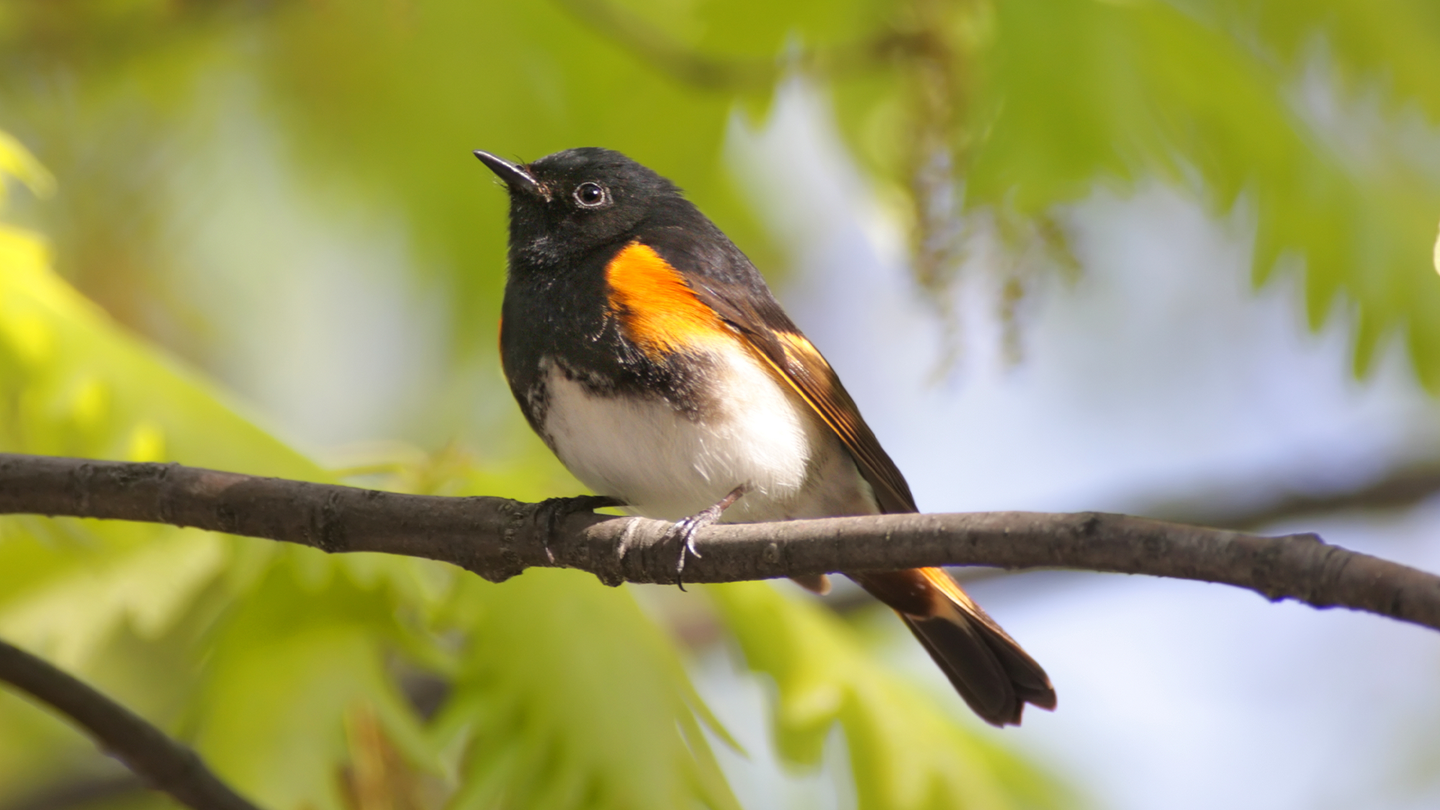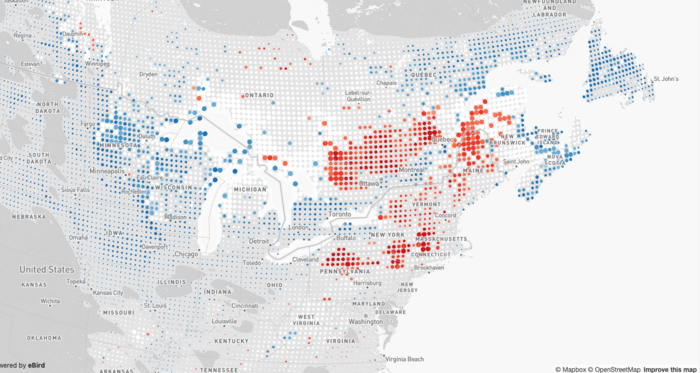
Climate change has deteriorated the habitats of many migratory birds, permanently altering the timing of their expeditions. However, birds may be fighting back by changing their own plans.
A study published April 11 in the journal Ecology finds that birds can partially compensate for these changes. They do so by delaying the start of spring migration and completing the journey faster, but this strategy does come with the cost of a decline in overall survival.
“We found that our study species, the American Redstart, can migrate up to 43 percent faster to reach its breeding grounds after delaying departure from wintering grounds in Jamaica by as much as 10 days,” co-author and Georgetown postdoctoral fellow Bryant Dossman said in a statement. “But increased migration speed also led to a drop of more than 6 percent in their overall survival rate.”
[Related: Migratory birds in the Eastern US are struggling to adapt to climate change.]
American Redstarts breed in the trees and woodlands of southern Canada and the northeastern United States. They can lay two to five eggs at a time and both parents feed their young. According to the National Audubon Society, warblers like the Redstart are often called ‘the butterflies of the bird world,’ for their ability to flit among treetops. The iconic Redstart may live up to that nickname more than other warblers for its speed and colorful wings.
Some of the ways that birds like the Redstarts can speed up the migration are by flying faster and making fewer or shorter stops to refuel. The speedier voyages help compensate for the delayed departures, but can’t entirely make up for the lost time. According to the team on this study, individuals can recover about 60 percent of the lost time to a 10-day delay, but the birds will still be late to their breeding grounds.

Jamaica, where some of the Redstarts spend their non-breeding seasons, has become an increasingly dry climate in recent decades. The dryness means fewer insects, which are the mainstay of the Redstart’s diet. It now takes the birds longer to get into the physical condition needed for the rigors of migration. Climate change is also causing the plants to bloom sooner and the insects to emerge sooner on the breeding grounds.
“On average, migratory songbirds only live a year or two, so keeping to a tight schedule is vital. They’re only going to get one or two chances to breed,” said Dossman. “Longer lived birds are less likely to take the risk of speeding up migrations because they have more chances throughout their lives to breed and pass on their genes.”
The team from Cornell University, the University of Maryland, and Georgetown University used 33 years of American Redstart migration departure data in tandem with automated radio tracking and light-level tags. They compared the birds’ expected departure date with their actual departure date to see how it has changed over time.
[Related: Birds are so specialized to their homes, it shows in their bones.]
“Understanding how animals can compensate is an important part of understanding where the impacts of climate change will play out,” said co-author and Georgetown University biologist Peter Marra, in a statement. “In this case, we may not lose a species entirely, but it is possible that populations of some species may go extinct locally due to climate change.”
Activities at the Redstart’s wintering grounds, such as not having enough food to eat, also carry over into the bird’s breeding season. While the Redstart population is stable and increasing in much of its breeding range, eBird trend maps show that the species is declining in southern Quebec, Canada and the northeastern United States.
“The good news is that birds are able to respond to changes in their environment,” Dossman said. “They have some flexibility and variation in their behaviors to begin with, but the question is, have they reached the limit of their ability to respond to climate change?”
The post Delaying departure may help birds migrate around climate change appeared first on Popular Science.
Articles may contain affiliate links which enable us to share in the revenue of any purchases made.
from Popular Science https://ift.tt/1ELV7hQ



0 Comments